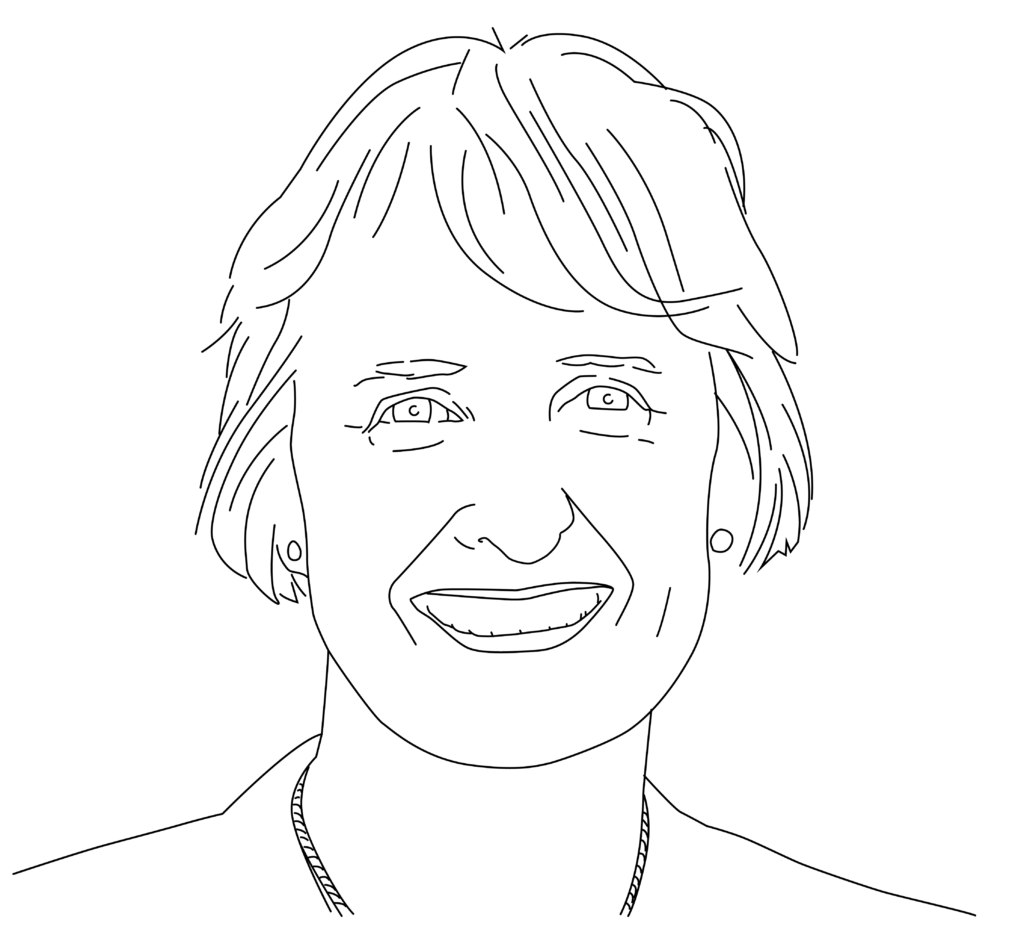
26 April 2023
“They’d told me beforehand that it would come in waves, and it did. I decided to lie down and put a mask over my eyes to block out the light so I could just listen to the music. I had headphones I could put on if I wanted to block everything out. My mind went into exploring everything. And then, when I was ready, I chatted to the therapists.” - A patient describes their experience taking MDMA for treatment of PTSD.
On Friday 3 February, the Therapeutic Goods Administration (TGA) announced that from 1 July 2023, 3,4-methylenedioxy-methamphetamine (MDMA) and psilocybin (the psychoactive component of “magic mushrooms”) can be prescribed as a therapeutic medicine by licensed psychiatrists in Australia. In doing so, Australia became the first jurisdiction to recognise psychedelic substances as potential therapeutic agents. This announcement comes almost seven years after a similar move was made towards the medicinal use of cannabis. As Australia increasingly moves towards recognising illicit substances as therapeutic agents, we may be able to draw on this recent experience with medicinal cannabis to ensure we maximise the safety and efficacy of these drugs and develop appropriate access pathways and clinical guidance.
An otherwise prohibited drug in Australia (under schedule 9 in the Poisons Standard), MDMA has been approved for the treatment of post-traumatic stress disorder (PTSD), and psilocybin for treatment-resistant depression. In order to do so, however, potential prescribers will first need to jump through a series of regulatory hoops. First, they must become an “authorised prescriber” – that is, gain approval to prescribe these medicines from an ethics body or specialist college with relevant expertise in the treatment of psychiatric disorders (e.g., The Royal Australian and New Zealand College of Psychiatrists). This application must provide sufficient evidence to justify the use of these medicines, citing data from relevant studies that demonstrate both efficacy and safety. Applicants must also provide a detailed protocol specifying the steps involved in the treatment plan. Once these boxes are checked, potential prescribers then need to seek final approval from the TGA.
So now they can prescribe these medicines? Not quite. Unlike medicinal cannabis where a number of specific products are listed on the TGA’s unapproved medicinal cannabis products website, no specific MDMA or psilocybin products have yet been evaluated or specified for use. Therefore, the clinician must show that they have considered all other TGA registered medicines, before importing non-registered substances from a sponsor company. These sponsor companies must additionally maintain communication with the TGA. This is bound to be a difficult and time-consuming process for clinicians. Hence we may expect very few patients to be prescribed these medicines over the next 12 months.
The evidence: comparing cannabis to MDMA and psilocybin
This regulatory hoop-jumping is reminiscent of the prescribing process for medicinal cannabis when it was permitted for medicinal use in 2016. Through the Special Access Scheme, medical practitioners were required to be signed off by numerous governing bodies while proving that all other therapeutic endeavours had failed. Further, the price of importing medical cannabis via the prescription model was significantly higher than via illicit sources. In the first three years of the enactment, 1,096 patients were treated via the authorised prescriber scheme. The dual issues of complicated access and high prices likely reduced the number of prescriptions in this early period – potentially limiting access only to those with sufficient means. This process has since been streamlined: clinicians can now opt to become licensed prescribers, and domestically sourced products are making medicines more affordable. Furthermore, some cannabis medicines no longer require Human Research Ethics Committee (HREC) approval or specialist college endorsement, as they are considered to have an established history of use by the TGA. As of December 2022, over one million patients have been treated with medical cannabis in Australia.
While it is unclear whether the prescription model for psilocybin and MDMA will follow a similar path to medicinal cannabis, there are several parallels that can be made. Despite limited evidence for the efficacy of cannabis use for the treatment of chronic pain and evidence of adverse events, it is the most common health condition for which cannabis is prescribed in Australia and internationally (United States and Canada). Likewise, and perhaps to an even greater degree, the evidence for MDMA and psilocybin as effective treatments for PTSD and depression is sparse and mixed, and there remains a lack of clarity regarding the proposed mechanism of effect. It is theorised that MDMA may be an effective treatment for PTSD as it acts as a catalyst for facilitating trauma processing, however it is often misinterpreted as a direct cure for these conditions rather than an adjunct treatment to psychotherapy.
According to multiple neuroimaging studies, psilocybin is purported to assist with treatment-resistant depression by its interaction with serotonin receptors and other regions of the brain involved in sensitivity to negative stimuli. While quite a large number of rigorously conducted clinical trials were available at the time of the authorised prescribing of medicinal cannabis, there are so few clinical trials examining MDMA and psilocybin as therapeutic agents that many have been taken aback at the TGA’s somewhat rapid decision to allow prescription in Australia.
The evidence to date is drawn from a handful of modestly sized clinical trials with short-term follow-up. One promising double-blind randomised controlled trial among 90 people with a severe PTSD diagnosis in the US, found that when MDMA was delivered alongside psychotherapy over three sessions, there was a reduction in PTSD symptoms compared to psychotherapy alone up to 18 weeks post-baseline. Importantly, those randomised to MDMA treatment did not experience an increase in major adverse events (e.g., cardiovascular conditions, suicidal ideations). To date no such studies have been conducted in Australia.
The evidence for psilocybin as an effective treatment, is less clear. One recent clinical trial among 233 people with treatment resistant depression found that while 25mg of psilocybin (but not 1mg or 10mg) alongside psychotherapy was effective in reducing participants’ depressive symptoms at immediate post-test, these effects were not sustained 12-weeks after treatment. Further, adverse events such as headaches, nausea and dizziness were common among the cohort.
Building a policy agenda for prescribing MDMA and psilocybin
There is more research that needs to be done in this space, particularly the use of long-term follow-up. While hallucinogenic drugs, like cannabis, are associated with fewer acute and chronic harms than other substances, such as alcohol and tobacco, there remains the potential for quite serious negative outcomes. Often coined a “bad trip”, hallucinogenic drugs can produce extreme short term psychological distress, and have been associated with long-term psychological harm.
There remains the ongoing concern that “legalisation” of otherwise illicit drugs will result in increased population level use, either via increased availability, relaxed perceptions of harms, or a combination of both. Taking medicinal cannabis as a comparison, there is evidence to suggest that rates of cannabis use, and cannabis use disorder, motor vehicle road injuries and emergency service presentations increased among adults as in US jurisdictions where medicinal cannabis had been legalised. As for Australia, population data suggests that cannabis use has indeed increased since 2016 (when access was made via the prescription pathway), but it is unclear whether this is due to the medicinal legalisation process. Cannabinoids can also be detected in roadside drug testing well after intoxication, putting patients at risk of legal ramifications.
Regardless, in addition to evidence of safety and efficacy among those using illicit drugs for therapeutic purposes, the implementation of legalised pathways for otherwise illicit drugs must also take into account the broader population health impact that medicinal legislation will have on illicit use and long-term harms.
Australia is the first country to have introduced the medicinal use of these substances, and the rest of the world will be watching. While this is unprecedented, there are key lessons that can be taken from the cannabis experience:
- Policymakers must ensure that there is adequate funding towards the research of these medicines, so that the short and long-term effects are thoroughly investigated.
- Prescribing clinicians must demonstrate their understanding of the evidence, particularly how it compares to that of alternative, and potentially safer treatments.
- We need clear restrictions regarding the regulation and enforcement of alternative sources of these drugs in order to prevent the growing trade of “psychedelic retreats” and the like. Indeed, it is crucial that health professionals make the distinction between the therapeutic use of these medicines and illegally purchased products to prevent unsafe drug use.
- Finally – as with medicinal cannabis – it is important to avoid the temptation to view these substances as a panacea for all mental health conditions.
At present, these substances are only indicated for a very small proportion of people in Australia currently suffering from specific, severe mental health conditions. We must remain focused on continually improving the quality of, and access to mental health care for all Australians more broadly, and consider these substances as only a small part of the suite of interventions we have to improve the mental health and wellbeing of Australians.
Dr Jack Wilson is a Postdoctoral Research Fellow at the Matilda Centre, the University of Sydney. His research focuses on patterns of cannabis and other drug use, associated health outcomes, and implications for Australian cannabis policy. Jack has served as an expert consultant for the Western Australian Mental Health Commission’s drug prevention and information program, Drug Aware.
Dr Emily Stockings is an NHMRC Fellow and Program Lead of ‘Smoking, Vaping and Mental Health’ at The Matilda Centre, the University of Sydney. She has worked with state and federal government agencies to develop clinical guidelines for the prescription of unapproved therapeutic products, including medicinal cannabis. She is expert consultant to the Therapeutic Goods Administration, the Commonwealth Department of Health and the World Health Organization on tobacco control and emerging therapeutic substances.
Professor Maree Teesson AC FAHMS, FASSA is an NHMRC Leadership Fellow, Director of the Matilda Centre and Director of the NHMRC Centre of Research Excellence in Prevention and Early Intervention in Mental Illness and Substance Use (PREMISE) at the University of Sydney. Professor Teesson is a former National Mental Health Commissioner (2018-2021), former member of the NHMRC Council (2018-2021), an Australian Academy of Health and Medical Sciences Fellow and a Fellow of the Australian Academy of Social Sciences.
Image credit: Alexmia/Getty Images
Features
Melissa Phillips
Krystal Lockwood and Heron Loban
Subscribe to The Policymaker
Explore more articles
Alex Fischer & Nick Davis
Claire Morse and Conrad Townson
Rachel Visontay, Louise Mewton and Maree Teesson
Features
Alice Dawkins & Rys Farthing
Ken Baldwin, Bruce Chapman & Glenn Withers
Ken Baldwin, Bruce Chapman & Glenn Withers
Explore more articles
Alex Fischer & Nick Davis
Claire Morse and Conrad Townson
Rachel Visontay, Louise Mewton and Maree Teesson
Subscribe to The Policymaker









